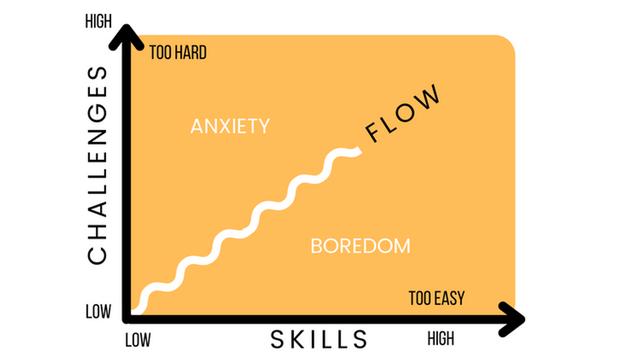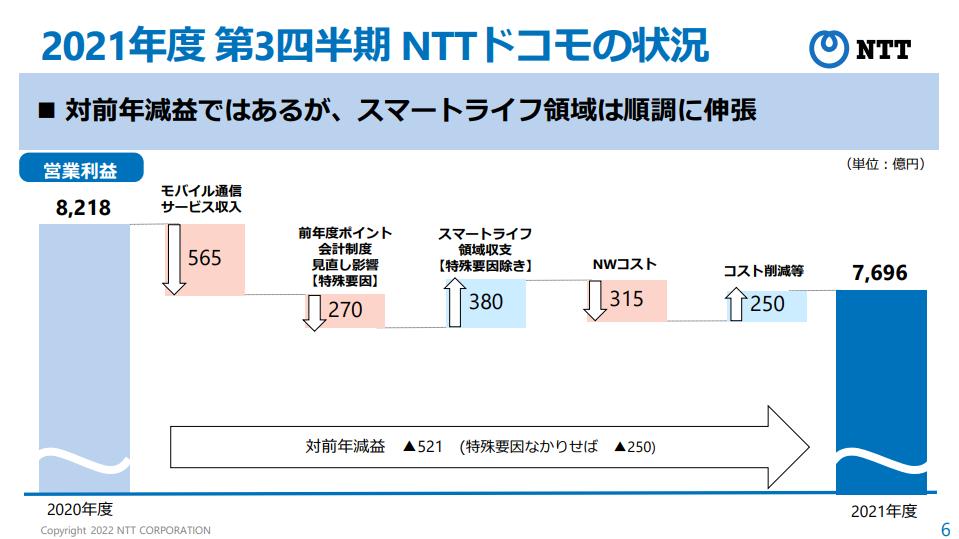When a plumber on the verge of bankruptcy started a tapioca shop and an apparel business, it became ``the best company in the world that can do what you want'' Part 2
――――――――――――――――――――――――――――――――――――
Shunsuido's business in Japan got on track after a lot of hardships, and when the number of stores increased, Yuzo Sekiya entered the apparel business. At that time, Mr. Sekiya was interviewing employees for the 10th anniversary commemorative project. In the chat, he suggested, "Why don't you make your work clothes cool so that you can hire young people?" It is true that the water supply business was having a hard time recruiting young people. From there, the development of Mr. Sekiya's "work clothes that look like a suit" began.
・Reasons why briefing sessions for recruiting new graduates are said to be the most interesting in Japan
・Neither specialists nor generalists work well
・I can't find what I want to do because I'm looking for it
――――――――――――――――――――――――――――――――――――――
■ Development of work clothes that look like suits
Kurashige: Why did you go to apparel again after visiting the waterworks and Taiwanese cafes?
Sekiya: Since we were able to expand the water supply business and the restaurant business nationwide, I thought that if we had all the clothing, food and housing, it would become our three pillars. I also liked clothes, so I had a thought that "I want to make my own brand someday." Also, a project called "Let's make the company's work clothes cool" has just started.
Kurashige: It's the uniform of the water supply business.
Sekiya: It was difficult to hire young people in the water supply business. There was also the idea that if the clothes we wore became cool, young people would turn a little more towards us. Therefore, I came up with the concept of "work clothes that look like suits" that broke the barrier between suits and work clothes, and launched the apparel business.
Kurashige: It's not that easy either.
Sekiya: It took two years just to develop materials (laughs).
Kurashige: I'm an amateur in apparel, and I think it's amazing to start from scratch again. Was it difficult at first?
Sekiya: Again, it was incredibly difficult. First, we searched for factories and cooperating manufacturers and made samples. However, I am not satisfied with the comfort and durability. I ordered dozens of the latest fabrics from manufacturers, but nothing satisfied me. In order to create the ideal clothes, the only option was to “develop from the materials”. At that time, the employees were amazed, but the atmosphere was like, "It looks interesting."
Kurashige: It's a good trend to have such a mindset. How long did it take you to become profitable?
Sekiya: It took about 2 years to develop materials, and about 3 years to make a profit, totaling about 5 years.
Kurashige: It took quite a while, but was the bank okay?
Sekiya: Of course I strongly disagree. You said, "Do you know how much apparel is a declining industry? Are you aiming for UNIQLO?"
Kurashige: However, it was an unusual hit, surpassing the expectations of the bank. The water supply business was an extension of my family's business, but from there I started a food and apparel business in a different field. I thought it would be better to share this ability to take action and the underlying mindset with as many people as possible, but what is the most important way of thinking?
Sekiya: Ever since I was a kid, I've admired Lupine III. A man longs for "a big adventure looking for treasure" once. I thought it was cool for an adult to do something when he wanted to, even though he was lacking in some way. I think that a life that continues to challenge various things is fun. I hate doing the same thing every year to survive.
Kurashige: It's not fun if you can see the future inside yourself.
Sekiya: The newer it is, the more difficult it is, and the more interesting it is.
Kurashige: It's mentioned a lot in the book.
Because I am also in the field of labor law, I often say, "What do you work for?" If I won the lottery of 500 million yen, would I not work? I read in a book that "Traveling around the world and partying every day will get boring very quickly", and I think it's true.
Sekiya: If work itself is fun, I think life is pretty fun. Work is where we spend the most time in our lives, and employees are the people we spend the most time with. If the employees I work with are my friends, my friends, and the projects I'm involved in are exciting, life is definitely fun. I wonder why everyone doesn't pursue it. Some people say, "I don't want to go to work on Mondays."
Kurashige: Sazae-san Syndrome. A little while ago, an advertisement at Shinagawa Station asking, "Are you looking forward to today's work?" went up in flames. It's the flip side of how many people think "work is not fun".
Sekiya: There is also the fact that I work only for the weekend. I'm not saying it's bad, but if you're happy Monday through Friday, you don't have to work so hard on anything else.
Kurashige: It means you can enjoy both. I hope that the number of people with such a mindset will increase.
■The information session for recruiting new graduates is the most interesting in Japan
Kurashige: Mr. Sekiya's company is said to have the most interesting information sessions for recruiting new graduates in Japan. How do you convey the message that Mr. Sekiya just said to young people?
Sekiya: I'm just talking about my experience. I finally ask, "Why are you the best company in the world that can do what you want to do?" When I ask young people today if there is anything they want to do, about 95 percent say they don't. If so, you didn't come to the information session.
Kurashige: They should be doing something by themselves.
Sekiya: However, everyone wants to take on a challenge when they find something they want to do, or when they have the ability to take a step forward. I will say that I was exactly like that. This company is a platform where you can do what you want to do in the world. He explains that the company was created to take a step forward when a dream is found.
Kurashige: I will support your growth and challenges.
Sekiya: I created an overseas cafe brand and an apparel business that I had never done before. I was like that myself, so when I make a presentation that says, "We are the company that can take on the most challenges in the world," it sticks.
Kurashige: For those who are still struggling to find what they want to do. As you say, most people don't have what they want to do. In particular, today's students do not show their backs that their parents are enjoying their work. Even more so, we tend to think that we have no choice but to work hard and not be negatively evaluated. I think it's natural that you can't find what you want to do.
Mr. Sekiya himself didn't always have something he wanted to do. In a sense, it was a series of coincidences. I can finally do what I want now. What kind of thinking do you think works?
Sekiya: “Enjoying work” is the main axis. Even if I look at the president of a certain apparel manufacturer, I can't see his heart dancing. Because they only do what they have a chance of winning. I don't think there's anything wrong with the business strategy, but I feel lonely in my life if I can't challenge what I really want to do because I'm caught up in it. If you want to grow vegetables, why not grow them?
Kurashige: Sometimes I want to grow vegetables and cows.
Sekiya: Maybe those people do home gardening as a hobby. My way of thinking is that you should do it seriously at work and do it until you win.
Kurashige: How do you think you should find what you want to do?
Sekiya: I think I can't find it because I'm looking for it. I think it will spring up. Like bluebirds, everyone thinks too much, "What do I want to do?" and "What kind of person do I want to be?"
Kurashige: You end up going to India to find yourself.
Sekiya: The only thing that matters is working with people who are excited. If you work with exciting people and work hard, you will be inspired every day, and at a certain moment you will be inspired by what you want to do, and you will be able to take on the challenge.
■ 40s is the time to go full swing with what you want to do
Kurashige: In your book, you wrote, "When you're in your 20s, first do a job that has a connection with you." In your 20s, do what is right at your fingertips, in your 30s, get results and gain confidence, and in your 40s, it's the prime time.
Sekiya: In your 40s, it's not about making a profit or doing well, it's a time to make a full swing of what you want to do.
Kurashige: People in their 40s have a good balance between physical strength and energy, experience and career. And you can still start new things. Are there any employees at your current company who have started a new business?
Sekiya: Local sweets are not selling well due to the coronavirus. I am also from a rural area, so I am very interested in regional revitalization. Everyone wants to revitalize the region and region. I happen to have a connection with a company that makes eel pie. We are having an eel pie company use our clothes for their uniforms.
Kurashige: Do you use it in the factory?
Sekiya: One piece was adopted as the uniform of the sales staff at the store. We have our salespeople wear them as uniforms, and we also ask our factories to consider them.
When I heard from the eel pie company that "Sales are declining", I thought, "Isn't it interesting if we could revitalize regions and regions through sweets?" Two new graduates who love sweets are now posting on Instagram every day.
Kurashige: If there are people in the company who want to do something, they will entrust new projects more and more. The regional revitalization business may also become the fourth pillar in the future.
Sekiya: It may be.
Kurashige: I think that changing with the times is the key to survival.
In this uncertain era, what kind of skills and mental attitude do you think are required for people working at a company?
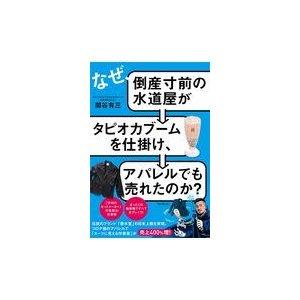
Sekiya: Anyway, multitasking is required, so you should really do various things.
Kurashige: Instead of saying, "It's not my job" or "I've never done it before," I want you to be interested and try it.
Sekiya: I don't think either specialists or generalists will do well. Specialists may one day suddenly be replaced by technology.
Kurashige: It may be replaced by machines or AI.
Sekiya: There is a possibility that people will say, "I don't need your skills from tomorrow," and the world of business isn't so sweet that generalists can say, "Broad and shallow."
Kurashige: It is said that "I can do anything" is the same as not being able to do anything.
Sekiya: Anyway, I wonder how many specialist abilities I can build within myself. We call it a "jungle gym" in the company, but it requires skills that allow you to freely compete with the times, whether vertically, horizontally, or diagonally.
Kurashige: The jungle gym skill is a combination of “can do” and “very good”. Educate through the creation of a system, and boldly entrust it with accompaniment. And when you multiply new things again.
Sekiya: Our company does a lot of things, so we have a wide range of skills.
Kurashige: It's the same with eating and drinking, and I'm doing things I've never done before.
Sekiya: I can develop stores, develop menus, and even make clothes (laughs). We have accumulated know-how in marketing and PR, and we are confident that we are second to none.
Kurashige: Now it is called "Reiwa's hit maker". So the president himself has steadily increased his skills. I thought it was important too, but I would like readers to be especially aware of the "oni-soku-response" practiced by Mr. Sekiya.
Sekiya: People who are busy and able to do so are quick to reply.
Kurashige: I really think so because I've been dating a lot of people.
Sekiya: We always talk about "Respond quickly" and "Don't associate with people who respond slowly". Time is the most important thing in life, so I think people who steal other people's time have no taste.
Kurashige: It's the same with suddenly making a phone call. In the book, it was also written that young people should treat their superiors in this way. "Properly invite them to dinner, behave cheerfully, ask questions, listen, and react" is very Showa style.
Sekiya: What we are aiming for is a hybrid of Showa and Reiwa. The Showa era alone is no good in this era, and I think the Reiwa era alone is no good either. It's not like we're living with just new humans.
Kurashige: That's true. Don't lack courtesy, and don't talk too much about yourself. My uncle would be happy if you could ask me. Some people say, "I didn't want to go to a year-end party, so Corona is just right."
Sekiya: Without that Showa skill, it's dangerous on the contrary. Showa alone is no good, but 90% of the world does not work only with SNS. So you should know both and go back and forth.
Kurashige: Both analog and technology are strong, which is the strongest.
Sekiya: I don't think an old man who can't use a computer is bad, but a young man who can't liven up a drinking party is also no good. I don't think either of them will survive.
Kurashige: Even if you try to behave like that tomorrow, you can't change it all at once. There was also a story saying, 'Do it until you become unconscious, and then you can change it.' I think it would be difficult to enjoy a drinking party with an uncle.
Sekiya: Our company has many young employees, and our office is located in the middle of Aoyama. Only Showa's sports contest keywords.
Kurashige: It seems to be posted in factories. I also put it on Ramen Jiro (laughs).
Sekiya: I think it would be nice to have a "nowadays" on top of that unrefined foundation as a person.
Kurashige: If you look unhappy, people won't approach you, so greetings are really important. Even if you are not good at it, if you try to greet them, they will return to you even if it is a little, and it is true that the distance will gradually decrease. Thank you too. There are many people who blame someone, saying, "He's the bad guy." If you take it for granted, you may forget to be grateful.
Sekiya: I will factorize them properly with logic and explain why they are necessary in company training. When I started eating and drinking, I was doing all the part-time job training.
Kurashige: Really? It's amazing that the president himself is training for a part-time job.
Sekiya: I explained how much I would gain if I could maintain a high level of "smiles, greetings, energy, and gratitude" in my life. It's a waste of time working in the service industry just for an hourly wage of 1,200 yen. Tell them that acquiring this skill is far more important than a salary.
Kurashige: It is amazing to make freeters and students aware that there are non-monetary rewards.
Sekiya: If you explain with logic, it will be understood by anyone. Uncle Showa is hated because he doesn't explain with logic. If you say things like, "You're not feeling well," or "For now, you'll be lucky if you speak in a cheerful voice."
Kurashige: How do you use logic to say greetings?
Sekiya: Greetings are the first step in communication. If you open your heart, you will naturally open your heart to others. Good communication increases the chances of a successful job. I used to move a lot when I was young. The high rent and the rate of greetings when passing each other in the hallway are clearly proportional. The higher the rent, the more people will greet you in the hallway.
Kurashige: Is it because you have the time?
Sekiya: I don't know if it's because I'm rich, so I have a lot of peace of mind, or because I greet people, my communication improves and my work goes well, but it's clearly proportional. No one greeted us, like a run-down apartment.
Kurashige: You can't afford to care about other people.
Sekiya: People's personalities don't change that much, so I think open-minded people attract luck and money.
Kurashige: If you say that, I think, "Let's try greetings." What does gratitude describe?
Sekiya: I don't have money when I'm young, but gratitude can be done without money. It feels good to say "thank you". If you give a heartfelt greeting for what you have done, you will be off-trading there. Give and take doesn't last unless it's even. I said that if I could say "thank you" as pleasantly as I received, I would get it again.
Kurashige: That's exactly right. I will return the favor someday.
Sekiya: It would be a waste if we don't continue like that. Your partner won't give you all the time.
Kurashige: You said, "Be the giver first." That's why I understand if it's necessary. Just because it's written in the manual doesn't mean you should do it.
Sekiya: I think it's good for yourself when you're young. It's okay to be hypocritical. In the past, we often talked about “altruism”. Saying something like altruism to a young child doesn't work. In today's world, "doing something that pleases others for the sake of the world" does not apply to young people. But altruism is inherently a good thing. If so, he said, ``When you're in your 20s, you're altruistic. Start with the form, and when something good happens to you, you will be able to do it naturally.
Kurashige: If you act like that, you'll become the real thing before you know it.
Sekiya: Even if your child doesn't like carrots, if you tell them, "Carrots are delicious," they might find them delicious.
Kurashige: Being altruistic is a good idea. It's okay to be hypocritical.
Sekiya: It's okay to be hypocritical in your 20s (laughs). It's a million times better than not pretending.
Kurashige: Then you will be able to do what you want someday, and the spirit of altruism will really come out.
Sekiya: If you work with an altruistic heart, people around you will support you.
Kurashige: I see. "Altruistic" is a good word.
(Continued)
Interview cooperation: Yuzo Sekiya
Representative Director of Oasis Lifestyle Group
Born in 1977 in Utsunomiya City, Tochigi Prefecture. In 2001, on the third day after entering Seijo University, he launched an event circle and expanded it to the largest scale in the university. After graduating from university, he returned to his hometown of Tochigi to rebuild his family's plumbing shop, which was on the verge of bankruptcy. After that, in 2006, he founded Oasis Solution Co., Ltd., created a business model in which he collaborated with a major condominium management company, and within a few years it grew to a nationwide scale and made a leap forward to become a company that boasts the No. 1 market share in the industry.
After experiencing the Great East Japan Earthquake in 2011, I keenly felt that it would be difficult to sustain a business with only one business, and decided to operate three pillars of business. In 2013, after 3 years of negotiations, we invited the Taiwanese cafe brand “Shunsuido”, which was the birthplace of tapioca milk tea, to Japan, opened the first overseas store in Daikanyama, and then expanded nationwide, sparking an unprecedented tapioca milk tea boom. become a person.
In 2017, we launched an apparel business as a third business with the renewal of work clothes for the water supply business. development. Currently, the number of companies that have introduced it has exceeded 1,600. In 2019, Mr. Shigematsu, honorary chairman of UNITED ARROWS, was appointed as an advisor. As of 2021, select shops such as United Arrows and Bay Cruise, department stores such as Isetan Mitsukoshi, etc. have attracted attention, and collaboration with ANA has attracted attention.
On March 8, 2021, he published his first book, "Why did a plumber on the verge of bankruptcy start a tapioca boom and sell apparel?" Leading various new businesses ahead of the times to success, he is called "Reiwa's hit maker".

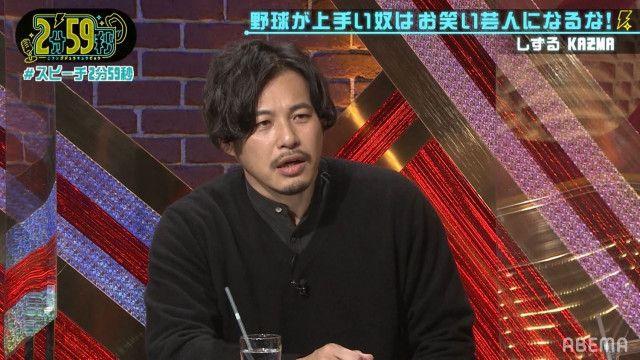
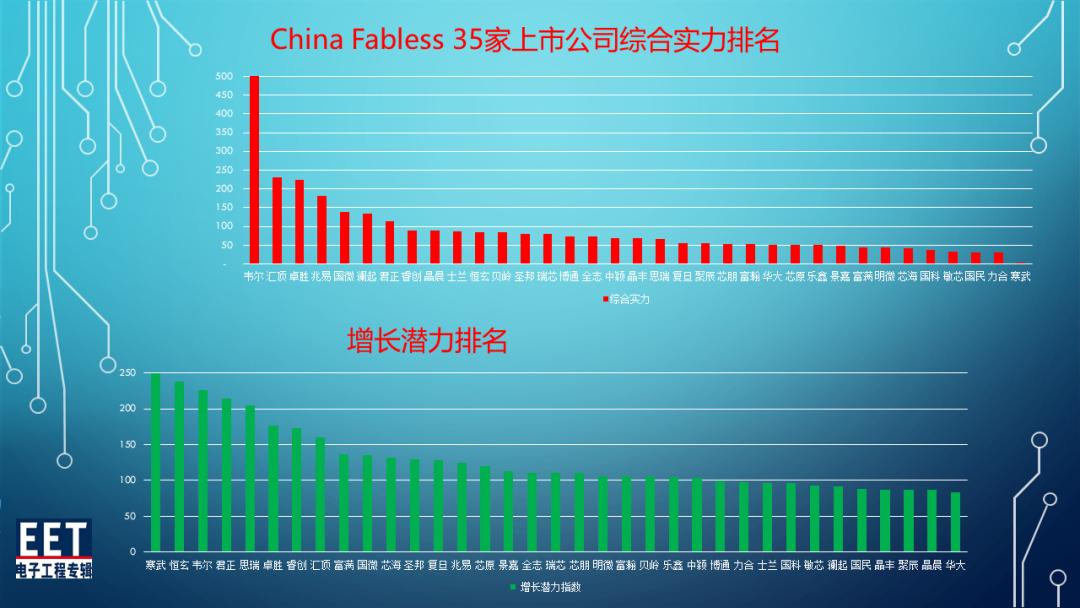
![[Excel] How to paste images such as photos and diagrams [Excel] How to paste images such as photos and diagrams](https://website-google-hk.oss-cn-hongkong.aliyuncs.com/drawing/article_results_9/2022/3/9/72539ecbf7413c05e4465b39ca06e8e0_0.jpeg)


